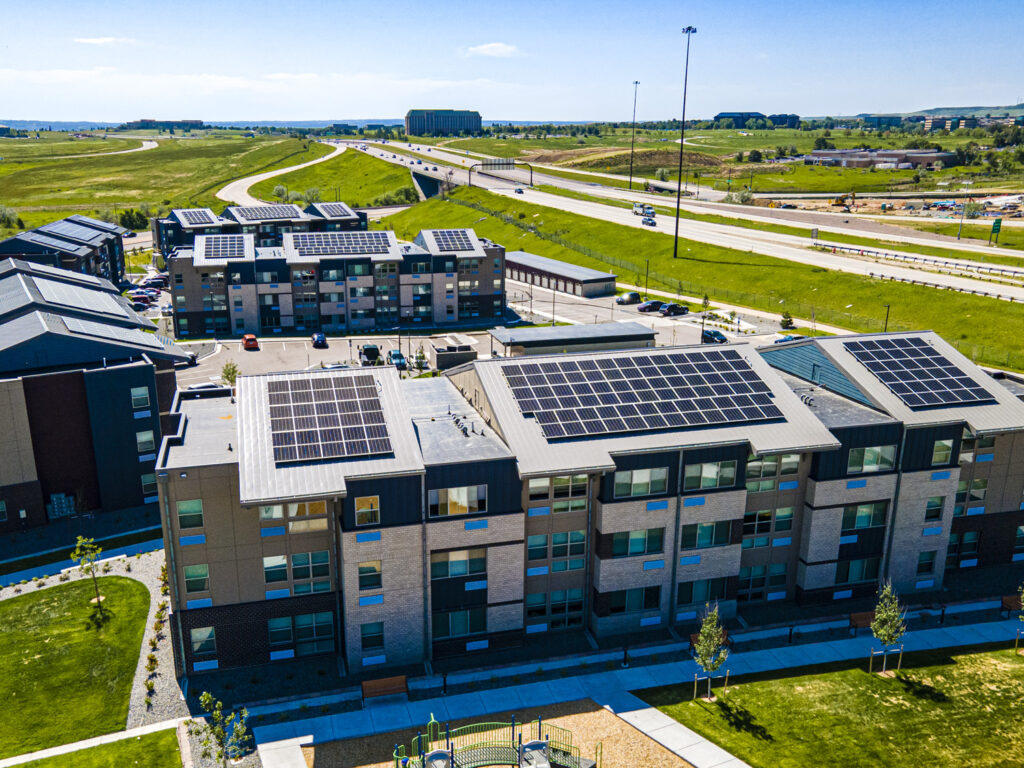By Charles Metz
You’ve researched solar and found it can be a great financial investment for commercial property owners. Of course, you now want to know, “How can solar benefit my specific property?” The next step is requesting a proposal from a reputable company. Since every solar proposal comes with different design elements, assumptions, and financial models, it’s important to know how to choose your best option. Here are eight considerations that will help you evaluate proposals and choose a reliable solar partner:
Company Experience
Just like every proposal is different, so is every company. As you look at their website and project portfolio, here are some questions we suggest asking: How long has the company been in business? Are they a design-build firm, and can they offer long-term service? How many projects have they completed in your area? Do they have trade-certified professionals and electricians? What have other customers said about working with them?
Rigor of Modeling
An in-depth analysis begins with a utility consumption and rate assessment, value-engineered design, and solar energy production modeling. When talking to a solar company, ask how they model projections. Ensure that the variables and assumptions are stated and justified.
Equipment
It’s crucial to look for a solar company that utilizes Tier-1 equipment manufacturers to ensure the quality of your solar system. Also, considering that every solar project is different, you should ask if the solar contractor is tied to specific vendors or if they have the flexibility to choose the best equipment for your project-specific needs.
Project Scope
A turnkey solar project will include design, production and financial modeling, fair and transparent contracting processes, engineering, permits, installation, roofer coordination on warranty, code-required safety equipment, interconnection and associated utility applications, procurement, taxes, commissioning, quality assurance, monitoring, and owner education. Partnering with a vertically integrated installer with these capabilities in-house will save you money and hassle in the long term.
Company Location
Are they a local company with detailed knowledge of local regulations and incentives? A solar contractor that understands the requirements in your jurisdiction will ensure a smooth process from contract through permission to operate (PTO).
Utility Escalator
The lifetime value of your commercial solar system will be highly affected by the future cost of utility energy. Each kWh your system generates is one less kWh that you buy from the utility company, and as utility costs increase, the value of energy from solar also increases. The assumed utility escalator should be applied in the proforma and based on data from an independent source.
Return on Investment Analysis
Are you comparing apples to apples? A cash deal will never present the same as a financed deal. Complex internal rate of return (IRR) analysis with dozens of variables is needed to assess the viability of your solar project accurately. Does the financial model include savings and income and the ongoing expenses associated with a solar system?
Operations and Maintenance
Does the company have a dedicated O&M team with licensed electricians on staff? Is O&M included in your contract? Some equipment requires annual checkups to maintain the warranty, so they should have a local and robust service department that can support you throughout your system’s life.
Choose a Solar Partner (not just a solar company)
Choosing a solar partner that is built to last is key. Find a company that has a vested interest in the success of your project and the capability of protecting your investment over the long term. What’s the best way to maximize your return on investment? Work with a company that not only has technical and operational expertise but also has roots in the community. If you have any questions about this process or are interested in solar, Namaste Solar is here to help!
Charles Metz is a commercial solar project developer at Namaste Solar. Namaste Solar’s purpose is to transform energy and transform business. The company’s non-commissioned solar developers will help you understand your project potential, and we’ll be the first to tell you if onsite solar doesn’t make sense for your property. Check out their extensive commercial experience and see how they measure up.









